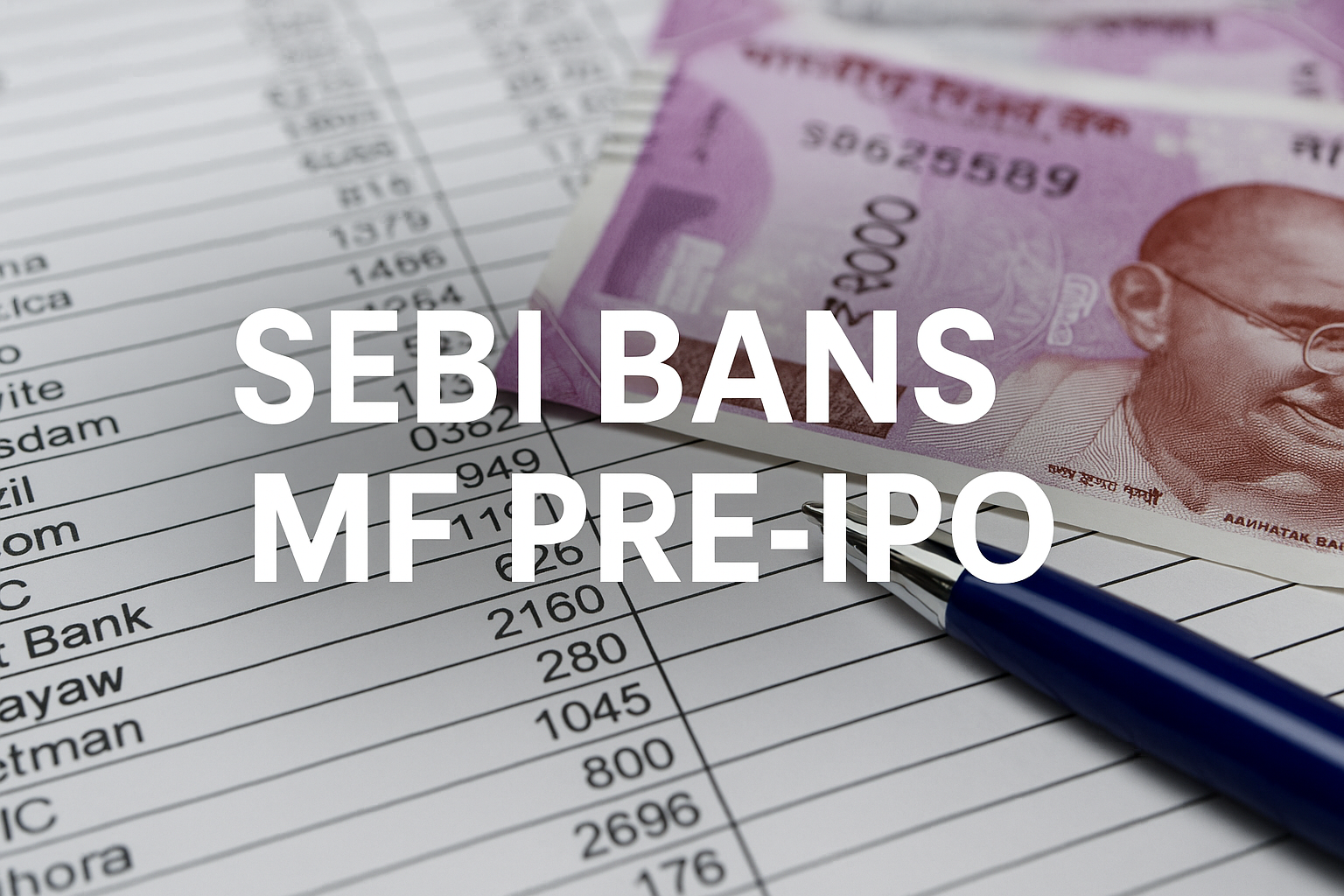Announcement: Lorem ipsum dolor sit amet, consectetur adipiscing elit. Donec et quam blandit odio sodales pharetra.
It may actually be unfair to bar mutual funds from pre-IPO market
SEBI has recently issued a directive to mutual funds, barring them from pre-IPO investments. What does this mean, and what would be the implications for mutual funds in terms of asset options?

Table of Content
Why pre-IPO market investing
Several companies do a placement of shares to FPIs, mutual funds, and family offices ahead of their IPO. In pre-IPO, the issuer can even offer a discount to the investors, something not allowed in case of anchor issues. The anchor issue price has to be the same or higher than the IPO price. Also, pre-IPO market is more complex and needs due diligence, so institutional investors are in a better position. Past experience shows that the pre-IPO market has generated smart returns for the mutual fund investors.
Then, why SEBI is banning it?
SEBI has some strong reasons to bar mutual funds from the pre-IPO market. According to SEBI, extant rules state that mutual fund can invest in listed or soon-to-be-listed securities. That is why SEBI is ok with mutual funds investing in anchor allotments or in QIB portion of the IPO. However, the pre-IPO does not specify any time frame for the IPO. It is entirely possible that the company may do the pre-IPO placement of shares, but the IPO may get shelved due to market conditions. In such cases, mutual funds may end up holding unlisted shares with an uncertain future. That is the concern!
Why are mutual funds unhappy?
However, mutual funds are not happy with this announcement. For the MFs, the pre-IPO market offers a forum for getting assured allocation of shares at an attractive price. That is the time, the company is also trying to discover price and institutional participation is the key. Mutual funds do not want to miss out on this part of the story. MFs believe (and rightly so) that current SEBI regulatory framework for mutual funds is fairly sound and can handle this risk. Lastly, while mutual funds will be barred from pre-IPO market, FPIs and family offices can continue to invest in it. That puts mutual funds at a disadvantage. So, is there a middle path out of this problem?
Mutual funds need some leeway
In a sense, mutual funds are right. By putting too many restrictions; the choice in front of mutual funds get limited. The idea granular regulation of risk, rather than barring mutual funds from the pre-IPO market. For a long time, the pre-IPO market has been lucrative for MFs and it does give them some leeway. If you look at Indian mutual funds, they do not have access to the wide range of asset classes or investment strategies that global mutual funds can deploy. In these conditions, taking away the pre-IPO market may only limit their options to generate alpha for investors. It looks more like a technical listing issue, and that must be addressed, without ban!
Comments